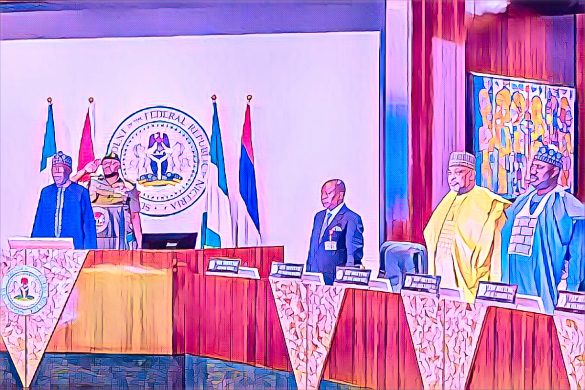Nigeria, Africa’s largest economy, is facing a serious challenge of high cost of governance, which is affecting its economic growth and development. According to the Revenue Mobilisation Allocation and Fiscal Commission (RMAFC), the agency responsible for determining the remuneration of public officials, the high cost of governance is responsible for the reduction in the provision of infrastructure and social services, as well as the rise in unemployment and insecurity.
The RMAFC chairman, Mohammed Bello Shehu, said in a statement on Sunday that the high cost of governance was caused by several factors, including the expensive presidential system of government, a bloated bureaucracy with overlapping ministries and agencies, and widespread corruption. He also cited the high cost of public service delivery due to infrastructure failure, high-security costs due to insurgencies, kidnappings, and armed robbery, multiple salaries and severance allowances, extravagant activities and expenditures, high domestic and foreign debts, and weak enforcement institutions.
He said that the cost of governance over the years had been very high and unsustainable, as recurrent expenditure continues to significantly exceed capital expenditure, thus negatively impacting investment, industrial expansion, infrastructural development, and growth of the real sectors of the economy.
Reforms Needed to Cut Down Excesses
He commended the administration of President Bola Tinubu for adopting the Oronsanye Committee Report, which was approved by the Federal Executive Council (FEC) in February 2024, as a way of curbing the high cost of governance through the restructuring and rationalisation of federal agencies, parastatals, and commissions. He said that the full implementation of the report would save the government billions of naira annually and improve efficiency and effectiveness in public service delivery.
Mohammed Bello Shehu also praised the current fiscal and monetary reforms being undertaken by the government, such as prioritizing price and exchange rate stability, to promote sustainable economic growth and safeguard the livelihoods of Nigerians. He said that such policies would help to cushion the impact of hyperinflation, which reached a record high of 25% in January 2024, according to the National Bureau of Statistics (NBS).
He advised the government to strengthen cooperation between the monetary and fiscal authorities, as well as the private sector, to address the challenges of the economy, especially the high unemployment rate, which stood at 35% in the fourth quarter of 2023, according to the NBS.
A Brighter Future for Nigeria
Mohammed Bello Shehu urged the government to invest more in human capital development, especially education and health, to improve the quality and productivity of the workforce. He said that Nigeria ranked 157 out of 189 countries in the 2023 Human Development Index, according to the United Nations Development Programme (UNDP).
He expressed optimism that Nigeria could overcome its economic woes and achieve its potential as a leading African and global player, if it adopts and implements the necessary reforms and policies to reduce the cost of governance and improve the welfare of its citizens.
Source: Punch


